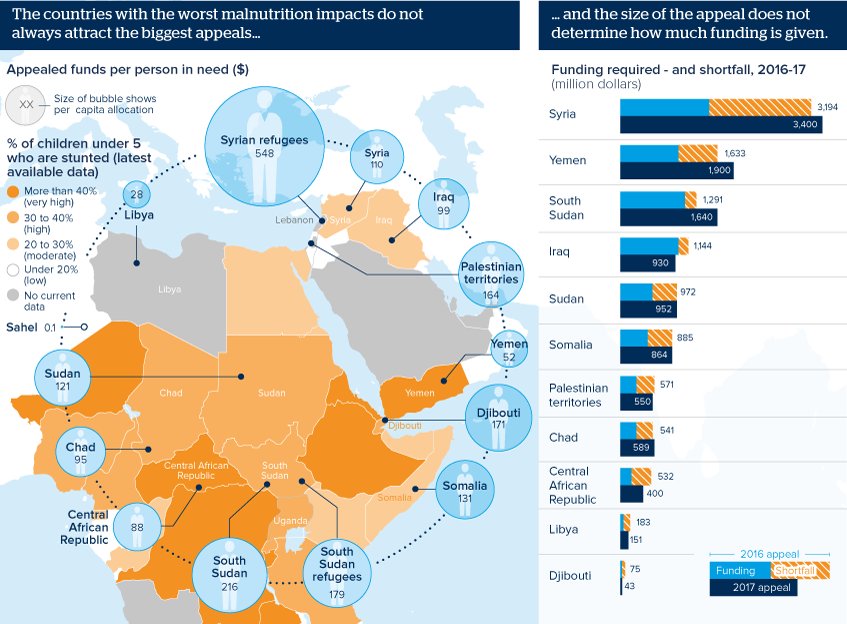Middle East politics will shape humanitarian funding
Iraq, Syria and Yemen, the UN's three top emergencies, are all in the Middle East -- but donor responses vary
Source: UNICEF, UNOCHA
Outlook
As emergencies become more complex and protracted, humanitarian needs will continue to rise: the UN will seek 22.2 billion dollars to respond to the needs of 92.8 million people in 33 countries in 2017 -- a 13% annual increase.
Although there are many reasons for variation in responses, some legitimate, they are likely to widen as donor countries increasingly think about aid in terms of political objectives.
Impacts
- Needs in Iraq could rise as the Mosul offensive progresses, but Western military involvement will secure funding.
- As reconstruction begins in Syria, the UN will struggle with charges that humanitarian aid is supporting the regime of Bashar al-Assad.
- Yemen faces serious risks of famine and cholera, but a perceived lack of strategic importance will keep it relatively underfunded.
- Sudden acute shocks and displacements could prompt more flash appeals in Africa in 2017, for instance in South Sudan.
See also
- Riyadh will delay attack on Yemen's Hodeida port - May 10, 2017
- Syrian reconstruction plans will multiply - Jan 30, 2017
- East Africa's humanitarian needs may increase - Aug 15, 2016
- More graphic analysis
